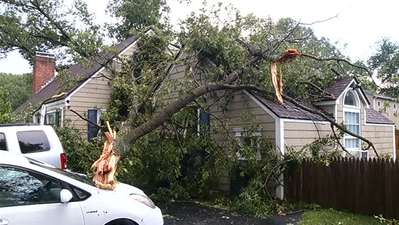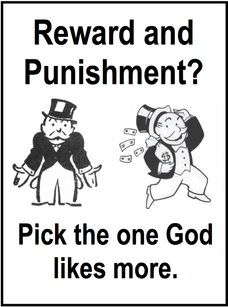
I'm happy to say that we are all fine. The wind blew open a newly-installed french door in our kitchen and the rain soaked the floor, but there was no major or lasting damage. A few people I know had big trees knocked down in their yards. I've heard plenty of stories of decks, roofs and cars that were badly damaged. I have not heard any stories of people who were injured. There is plenty to be thankful for.
The power is out at the synagogue I serve. Judging from the damage to the neighborhood, it may take a day or two to get it back. Because of that, we're postponing the Visual Tefilah service we had planned for this Friday. (We can't be sure that we will have power to run the projector that is needed for the service). Sometimes life reminds you that not all of the power is in your hands.
There is a lesson in that. In this week's Torah portion, Parashat Ekev, Moses warns the Israelites, "When you have eaten your fill, and have built fine houses to live in… beware against becoming arrogant and forgetting Adonai your God… so that you say to yourselves, 'My own power and the might of my own hand have won this wealth for me'” (Deuteronomy 8:12-17).
It is wonderful that we have nice homes with the conveniences of electricity and running water. However, we should beware the temptation of thinking that we somehow deserve everything we have. We know that when we forget to feel grateful, we lose our humility and our humanity. A power outage may be just the thing to remind us not to take things for granted and not to forget our good fortune.
In a few weeks, all of the damage from this week's storm will be cleaned up. The repair crews and the insurance adjusters will do their jobs. We'll move on from this storm and count our blessings until the next of life's storms hits. Until then, there is plenty to be grateful about. We have houses with electricity and running water. We have homes filled with love and reason to be hopeful about the future. We can't take the credit for all the goodness that fills our lives. Our hearts are open.
Other Posts on This Topic:
Ki Tavo: Gratitude in a Recession
Gaza, Gratitude and God




 RSS Feed
RSS Feed
